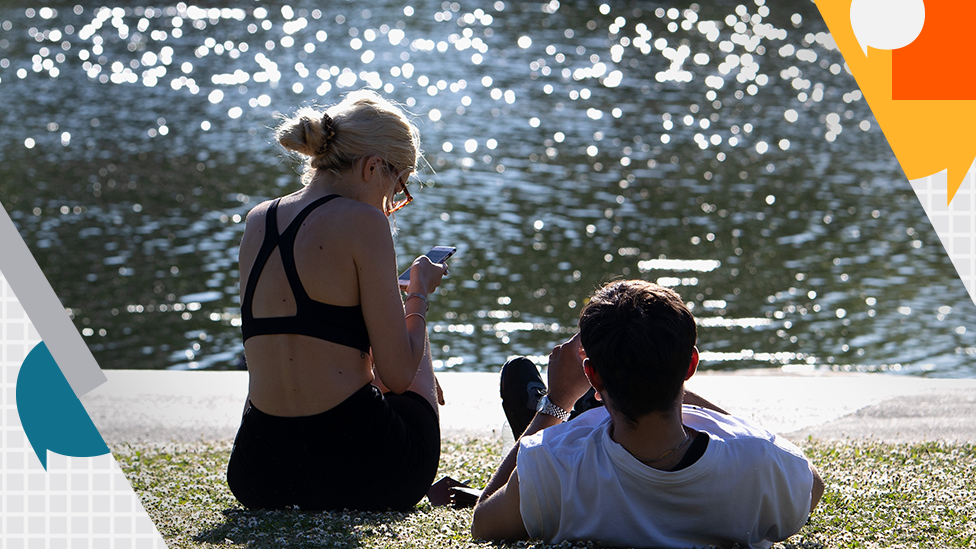Covid in Scotland: Answers to your questions
- Published

BBC Scotland has been asking you what you want to know about Covid in Scotland.
We have received thousands of questions on the subject during the pandemic. Here are some of the most recent ones we have answered.
Are we allowed to dance at weddings in level two? Kathleen, Chryston

Unfortunately not - the Scottish government says, external that at a wedding reception there should be no singing or dancing apart from:
The couple's "first dance"
A dance between the couple's parents - provided they live in the same household.
Only low-level background music is allowed at wedding receptions, in line with hospitality guidance on background music, external. That means it should not be played at a volume that would make normal conversation difficult, or encourage people to raise their voices.
Under level two restrictions, the closing time required in all indoor hospitality settings is 22:30, which applies to wedding receptions too. Numbers are also limited to a maximum of 50 people.
In level one areas weddings are limited to 100 people, and in level zero the figure is 200 people.
Why are we not vaccinating 24/7 if two doses means we can fully open up? Irene, Rutherglen
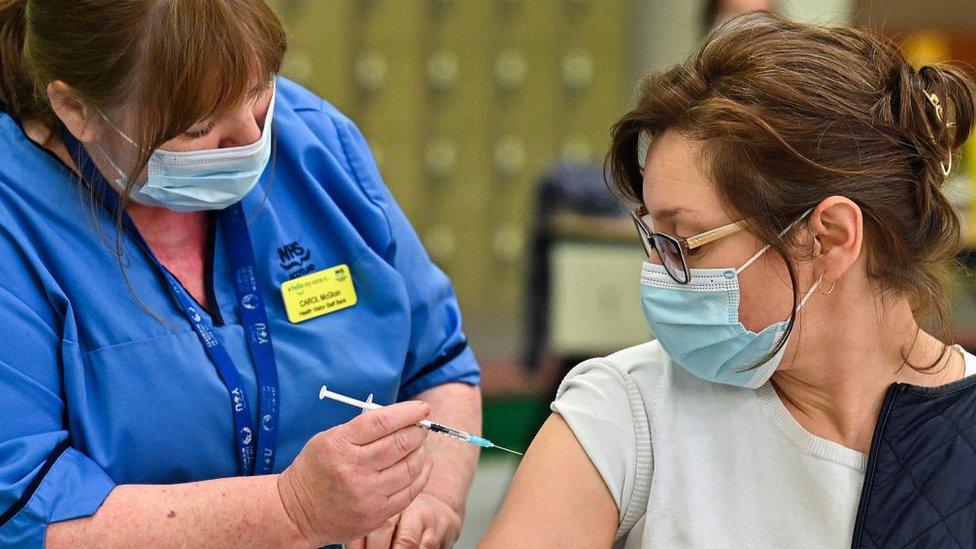
The Scottish government has previously said it would consider whether 24/7 vaccinations would allow the jabs to be rolled out quicker.
Earlier this year, ministers even said they were considering piloting round-the-clock vaccine clinics.
But they have also said that the main thing which is holding back the rollout is supply of vaccines, rather than the ability to deliver them.
Earlier this week, there was a warning that Pfizer vaccine supplies would be "tight" over the next few weeks - and would restrict the vaccination programme.
It follows advice that an alternative to the Oxford-AstraZeneca vaccine should be offered where possible to the under-40s, after a link with rare blood clots was identified.
Do we envisage the Covid vaccine being administered on a yearly basis like the flu jab? Les, Linlithgow
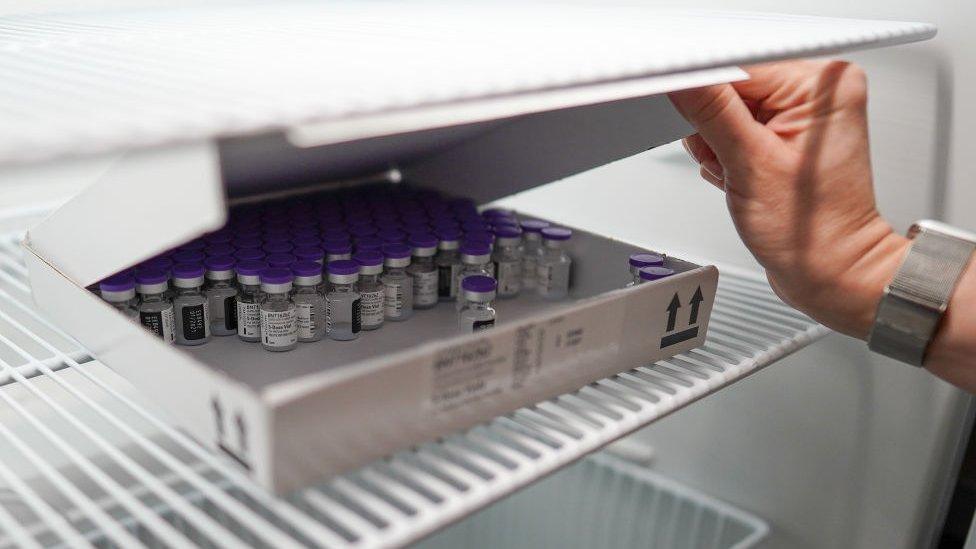
We don't really know yet, but it's something that's being looked into.
Clinical trials are currently ongoing to see which Covid vaccine works best as a third "booster" jab.
This trial will help inform decisions by public health officials on any potential booster programme which could take place in the autumn.
Four Covid vaccines are currently approved for use in the UK (Oxford-Astra Zeneca, Pfizer-BioNTech, Moderna and Janssen), with researchers saying they will consider three more in the booster trial (Valneva, Novavax and Curevac) which the UK has ordered that may be approved later in the year.
Researchers also hope to find out if different vaccine combinations will provide increased protection.
Now that the vaccine has been approved for teenagers, can those living with someone clinically vulnerable be vaccinated? Karen, Fife
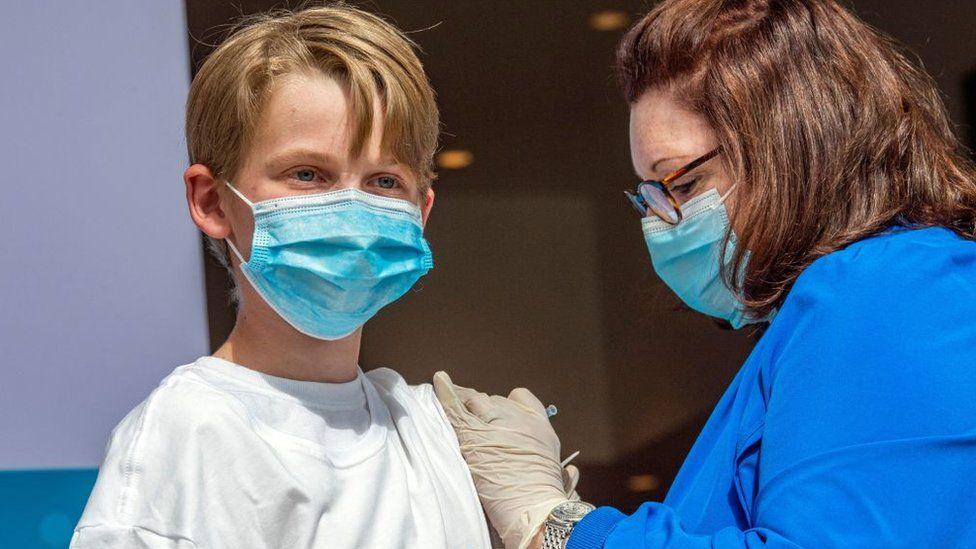
At present, there is no routine vaccination of under-18s against Covid in the UK.
However, current advice is that 16 to 18-years-old who are in a priority group, or who live in the same house as someone who is extremely vulnerable, should be offered a Covid vaccine.
The Pfizer vaccine was approved to be given to children aged 12-15 last week by the UK's regulator of medicines, the MHRA.
But it will be up to the UK's vaccines committee, the JCVI, to decide whether they should be offered the jab.
This panel, made up of independent expert clinicians and scientists, will now advise government on whether this age group should be vaccinated as part of the UK rollout.
And they will also provide advice on who should be prioritised, given the supply.
Nicola Sturgeon said on Tuesday that planning was already under way to deliver the vaccine to children within the age group in anticipation of the JCVI recommending it.
"We will move to implement any such advice as quickly as possible," she added.
How many people can meet in private homes (not public places)? Mary, East Lothian
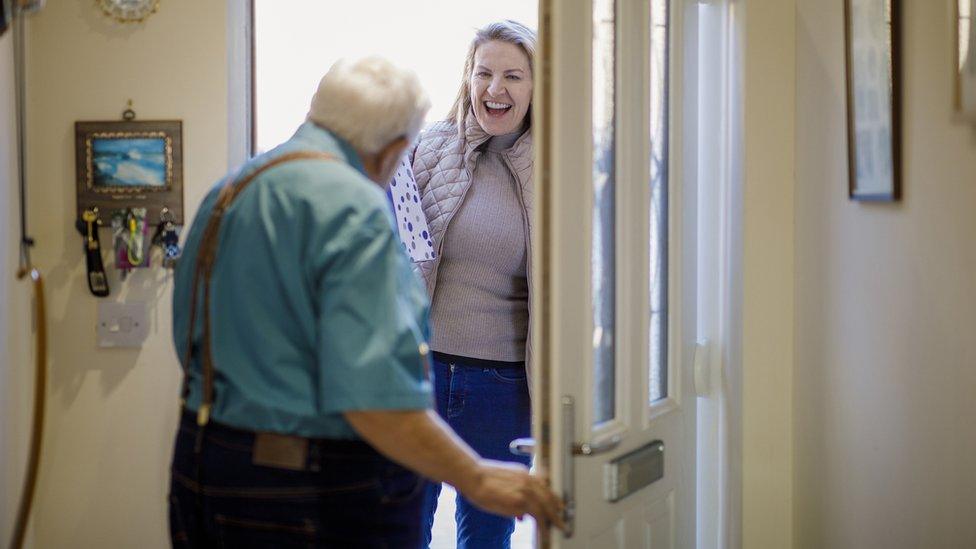
You can check which area your local authority is in here, external.
All of mainland Scotland is under either level one and level two rules, which means that the maximum number of people who can meet socially indoors in private homes is six, from up to three households.
Some islands are in level zero. In level zero, up to eight people from four households can meet inside a private house.
Children under 12 from these households do not count towards the total number of people permitted to meet. However, they do count towards the number of households.
You do not need to distance in a private home, but you should still take the following precautions:
Keep rooms well ventilated by opening windows and doors
Minimise the number of meetings you have with people from other households each day
Keep cleaning your hands and shared surfaces
Do not share food or utensils
Can we travel to stay with a friend in Dumfries and Galloway, from England? David, Cheshire
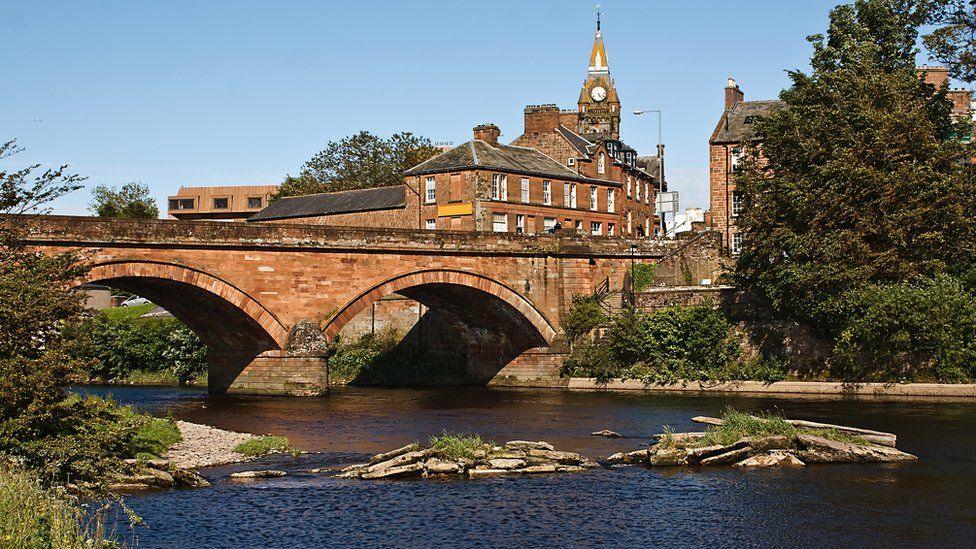
It depends where in England you are travelling from.
You should not travel to Scotland if you are travelling from Bedford, Blackburn with Darwen, or Bolton - due to the Covid outbreaks in these areas (unless it's for a permitted reason, external).
Providing you're not travelling from one of these areas, then it's OK to travel to Dumfries and Galloway - which is in level one.
In level one, overnight stays are allowed too.
Read more about the rules in level one areas here, external.
At level two, can I have someone else in my car? Chrissie, North Ayrshire
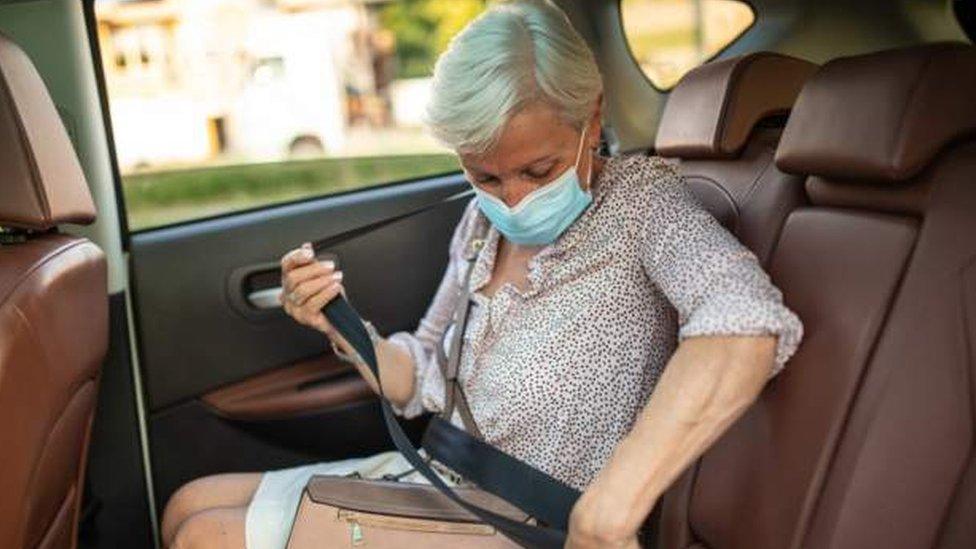
You should avoid car sharing with anyone from another household "unless you absolutely have to", according to the guidance. It says if you do have to share a car journey, you must take the following precautions:
limit the number of people in the car to as few as possible, ideally no more than two people (including children over 12).
use the biggest vehicle possible
sit as far apart as possible - ideally a passenger should sit in the back seat diagonally opposite the driver, aiming for 2m between them
windows in the car should be opened as far as possible to improve ventilation
wear face coverings
avoid eating in the car
passengers should try not to touch surfaces
keep music/radio to a minimum to prevent the need to raise your voice
keep journey times to the minimum feasible - the longer the journey, the higher the risk
clean the car regularly
Do you need a Covid test to travel to the Hebrides from the mainland? Rhys, Penarth

You don't need a test to travel to the islands, but it is encouraged.
The Scottish government say this is important to reduce the risk of coronavirus being brought into island communities.
You can order rapid lateral flow tests to be delivered to you anywhere in the UK. They should arrive in one to two days.
Travellers are asked to test three days before they plan to travel and then again on the day you leave for the islands.
If you test positive, you should complete your period of self-isolation before you begin your journey.
You can read more about what to do if you're planning to travel to the islands here., external


Do you have a question about the Covid restrictions in place in Scotland? Use the form below to send us your questions and we could be in touch.
In some cases your question will be published, displaying your name, age and location as you provide it, unless you state otherwise. Your contact details will never be published. Please ensure you have read the terms and conditions.
If you are reading this page on the BBC News app, you will need to visit the mobile version of the BBC website to submit your question on this topic.
Related topics
- Published21 March 2021
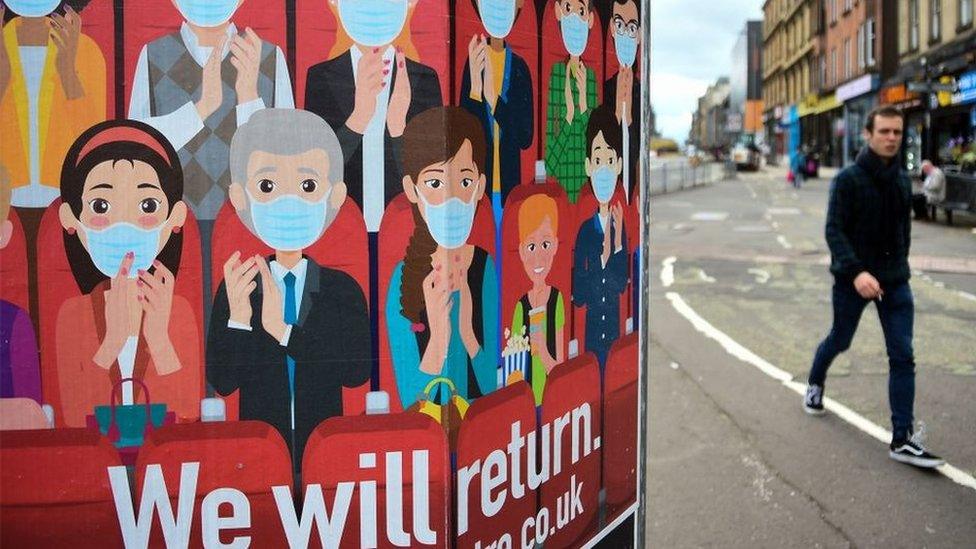
- Published16 February 2021
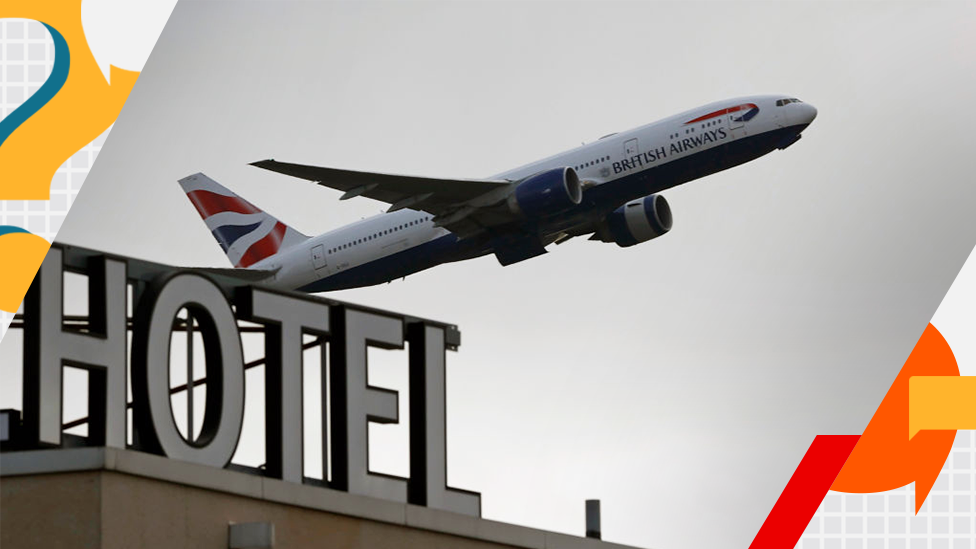
- Published23 December 2020
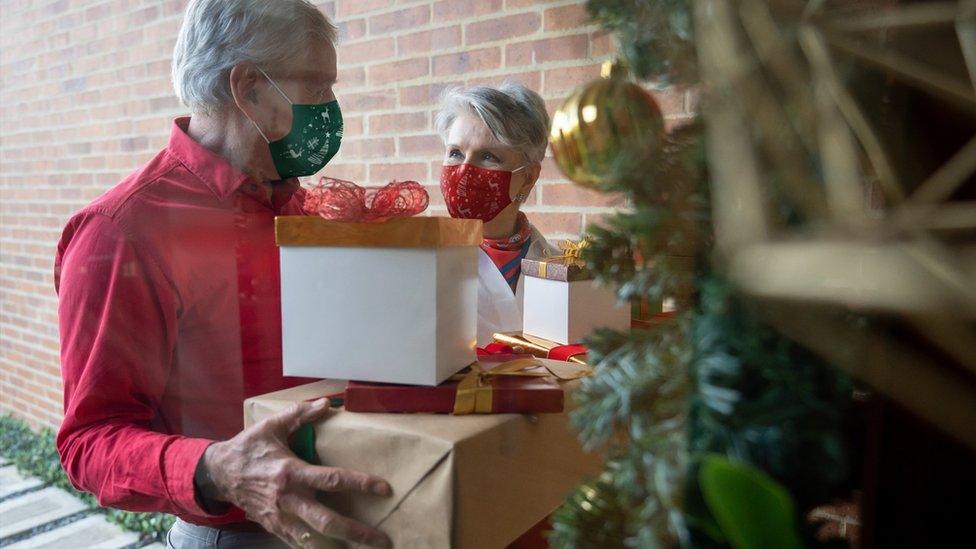
- Published2 November 2020
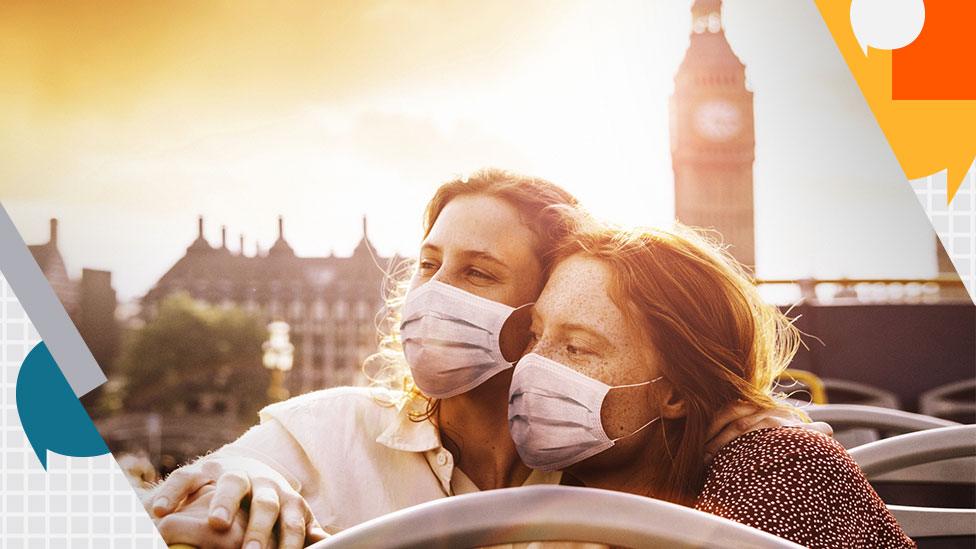
- Published12 October 2020

- Published24 September 2020
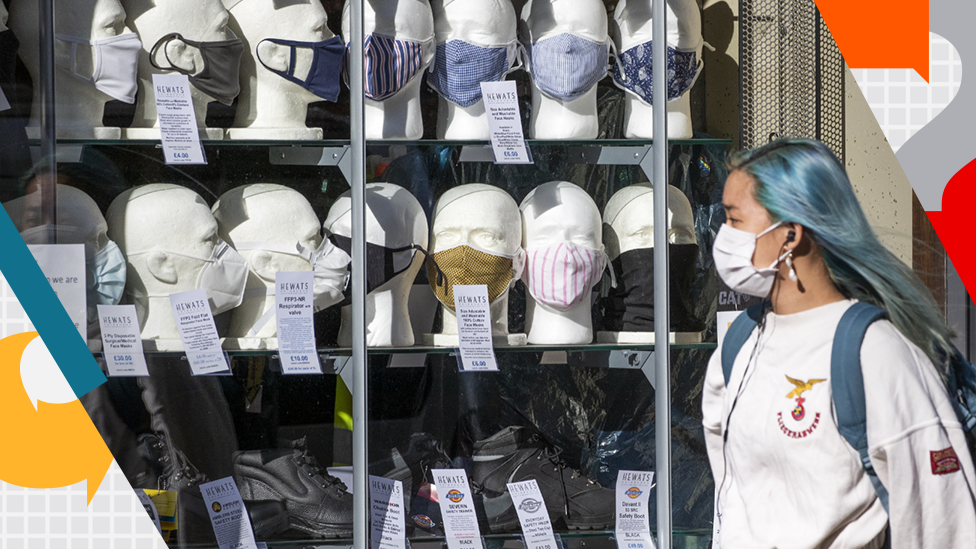
- Published8 June 2020
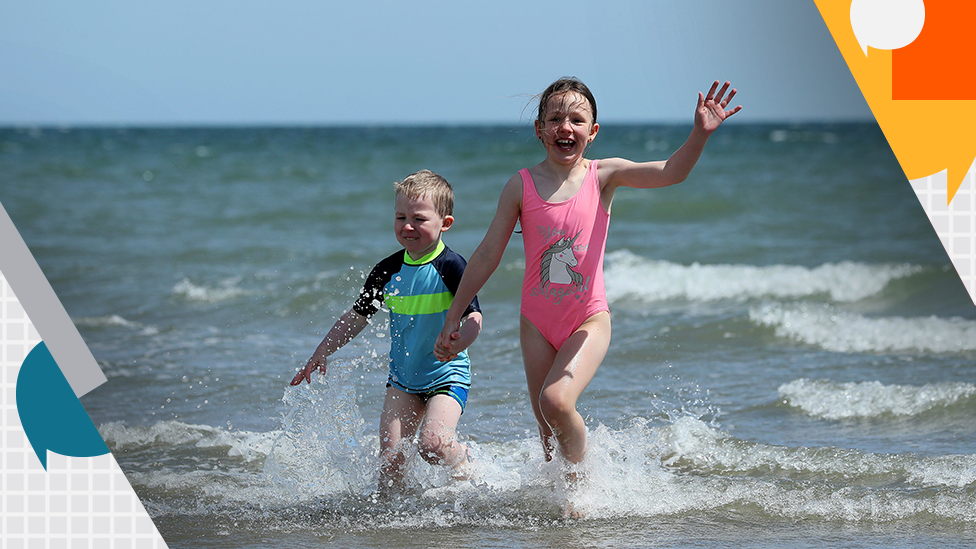
- Published29 May 2020
